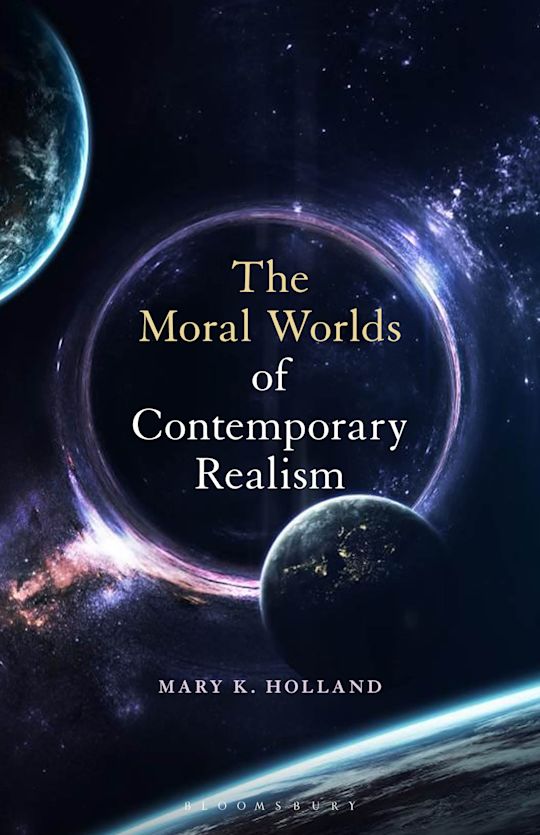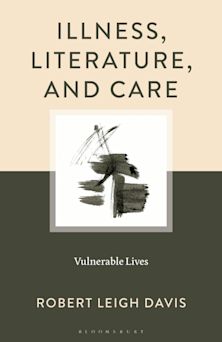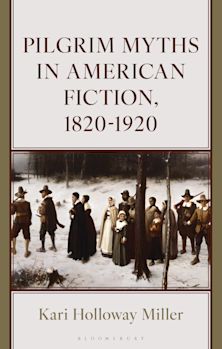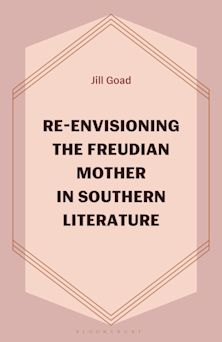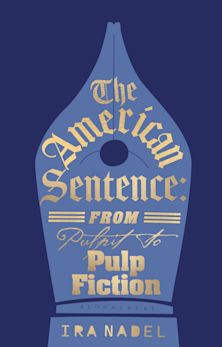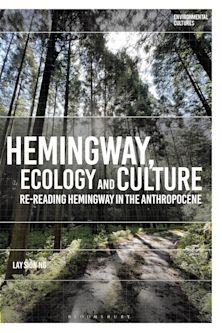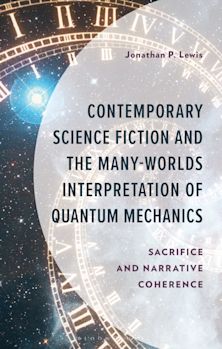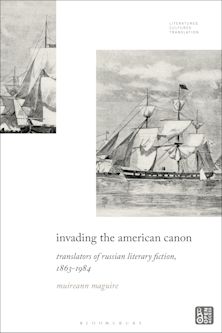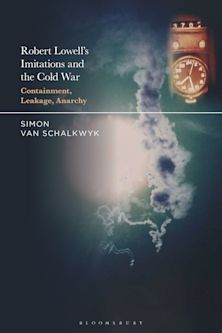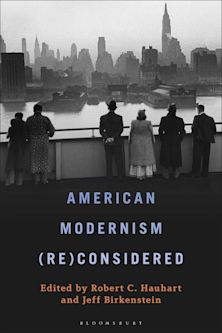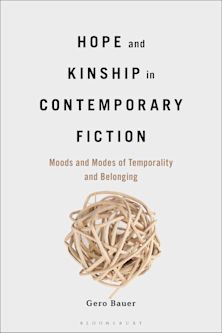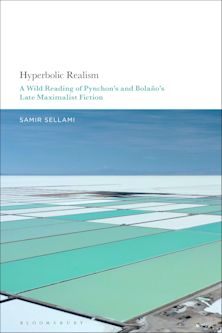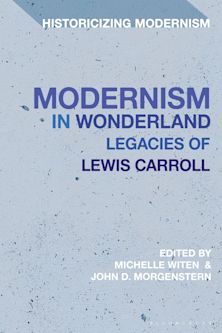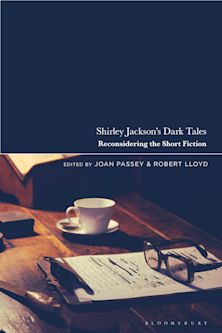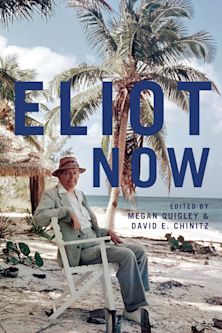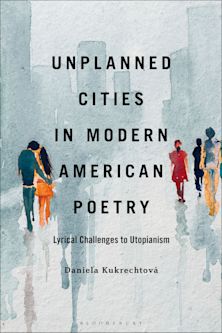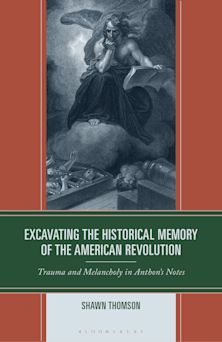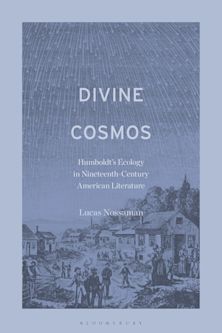- Home
- ACADEMIC
- Literary Studies
- North American and Caribbean Literature
- The Moral Worlds of Contemporary Realism
You must sign in to add this item to your wishlist. Please sign in or create an account
Description
Literature has never looked weirder--full of images, colors, gadgets, and footnotes, and violating established norms of character, plot, and narrative structure. Yet over the last 30 years, critics have coined more than 20 new “realisms” in their attempts to describe it.
What makes this decidedly unorthodox literature “realistic”? And if it is, then what does “realism” mean anymore?
Examining literature by dozens of writers, and over a century of theory and criticism about realism, The Moral Worlds of Contemporary Realism sorts through the current critical confusion to illustrate how our ideas about what is real and how best to depict it have changed dramatically, especially in recent years. Along the way, Mary K. Holland guides the reader on a lively tour through the landscape of contemporary literary studies--taking in metafiction, ideology, posthumanism, postmodernism, and poststructuralism--with forays into quantum mechanics, new materialism, and Buddhism as well, to give us entirely new ways of viewing how humans use language to make sense of--and to make--the world.
Table of Contents
Acknowledgments
Preface: The Problem of "Realism"
Introduction: A Brief History of Realisms
1. Metafictive Realism: David Foster Wallace and the Future of (Meta)Fiction
2. The Work of Art after the Mechanical Age: Materiality, Narrative, and the Real in the Fiction of Steve Tomasula
3. Material Realism and New Materialism in Literature from the 1990s to the Present
4. Quantum Realism: On Ted Chiang's "Story of Your Life" and Ruth Ozeki's A Tale for the Time Being
5. Quantum Realism Case Study: Don DeLillo's The Body Artist
Conclusion: Realism and Periodizing after Postmodernism
Bibliography
Index
Product details

| Published | Jun 11 2020 |
|---|---|
| Format | Ebook (Epub & Mobi) |
| Edition | 1st |
| Extent | 312 |
| ISBN | 9781501362637 |
| Imprint | Bloomsbury Academic |
| Publisher | Bloomsbury Publishing |
About the contributors
Reviews
-
A brilliant and scholarly theoretical synthesis of realism in America … Three new types of Realism are illustrated in the following chapters devoted to authors such as David Foster Wallace, Steve Tomasula, Ted Chiang, Ruth Ozeki, Don DeLillo, and an impressive number of other writers that testifies to Holland's broad and erudite knowledge of the literary production of the new millennium … Holland draws up a particularly convincing inventory of the most recent and innovative object-texts called 'artifacts' or 'assemblages' that further dissolve the distinction between language and matter … brilliantly commented upon and analyzed. The most innovative and impressive contribution of the book, which together reveals Holland's talents for fine reading, theoretical elaboration, and research, appears in the final chapters on quantum realism and DeLillo's The Body Artist (2001) in particular, of which she delivers a masterful interpretation and an exciting study of the manuscripts available at the Harry Ransom Center in Austin … A luminous, dense, complex, and convincing book that should be read by every student interested in 'post-postmodern' fiction and theory.
American Book Review
-
Holland [takes on] the endlessly vexed notion of realism by offering a framework for understanding it beyond the contentious and irresolvable debates about what it means to refer to certain writing as realistic … Moral Worlds's most significant insight: language, the sole, imperfect system of accessing and representing reality, does not inhibit our ability to engage with the world but, rather, precisely because of its limitations, parallels the human experience of limited sensory perception.
Twentieth-Century Literature
-
Rigorous yet lucid, blending technical adeptness with ethical urgency, The Moral Worlds of Contemporary Realism returns us to a reality that our most innovative writers are only just now beginning to reveal.
Modern Fiction Studies
-
Reading on contemporary fiction, one seldom encounters criticism that irrevocably transforms the interpretation of a given text. This is one of those rare occasions. Holland invites us to think about contemporary US fiction in a challenging way that contributes to debates about post-postmodernism.
American Literary History
-
Imagine a novel as an object in the world: not the imaginative dream that readers are normally invited to get lost in, but a novel with a body that has to be confronted. As Mary Holland argues, contemporary understandings of the world, and the Material Turn in philosophical concepts of the human and of nature, have also energized the 21st century novel--a conceptual pivot as fundamental as the turn to psychology or language during the modern or postmodern periods. Cultural sea changes so profound that they drive a rethinking of all the arts occur only once or twice in a generation: The Moral Worlds of Contemporary Realism is an exciting, field-changing analysis of how today, the new-material novel revitalizes print through its entanglement with readers and the stuff of the world--and the consequences wrought by these new realisms.
Steve Tomasula, Professor of English, University of Notre Dame, USA, and author of VAS: An Opera in Flatland (2002) and The Book of Portraiture (2006)
-
The Moral Worlds of Contemporary Realism radically and fruitfully upends all the critical truisms about realism(s), bringing both sanity and clarity to central literary and literary historical periodizing debates. By bringing together all the relevant theory, astute, insightful criticism, and, most significantly, innovative literary practice, it blows open all totalizing models of language/narrative/'real' world relations to theorize the fiction written in our twenty-first century 'reality.' This is an acutely analytic, intellectually generous, meticulously researched book that puts metafiction in its (real) place.
Linda Hutcheon, University Professor Emeritus, Department of English, University of Toronto, Canada, and author of Narcissistic Narrative: The Metafictional Paradox (1980)

ONLINE RESOURCES
Bloomsbury Collections
This book is available on Bloomsbury Collections where your library has access.








